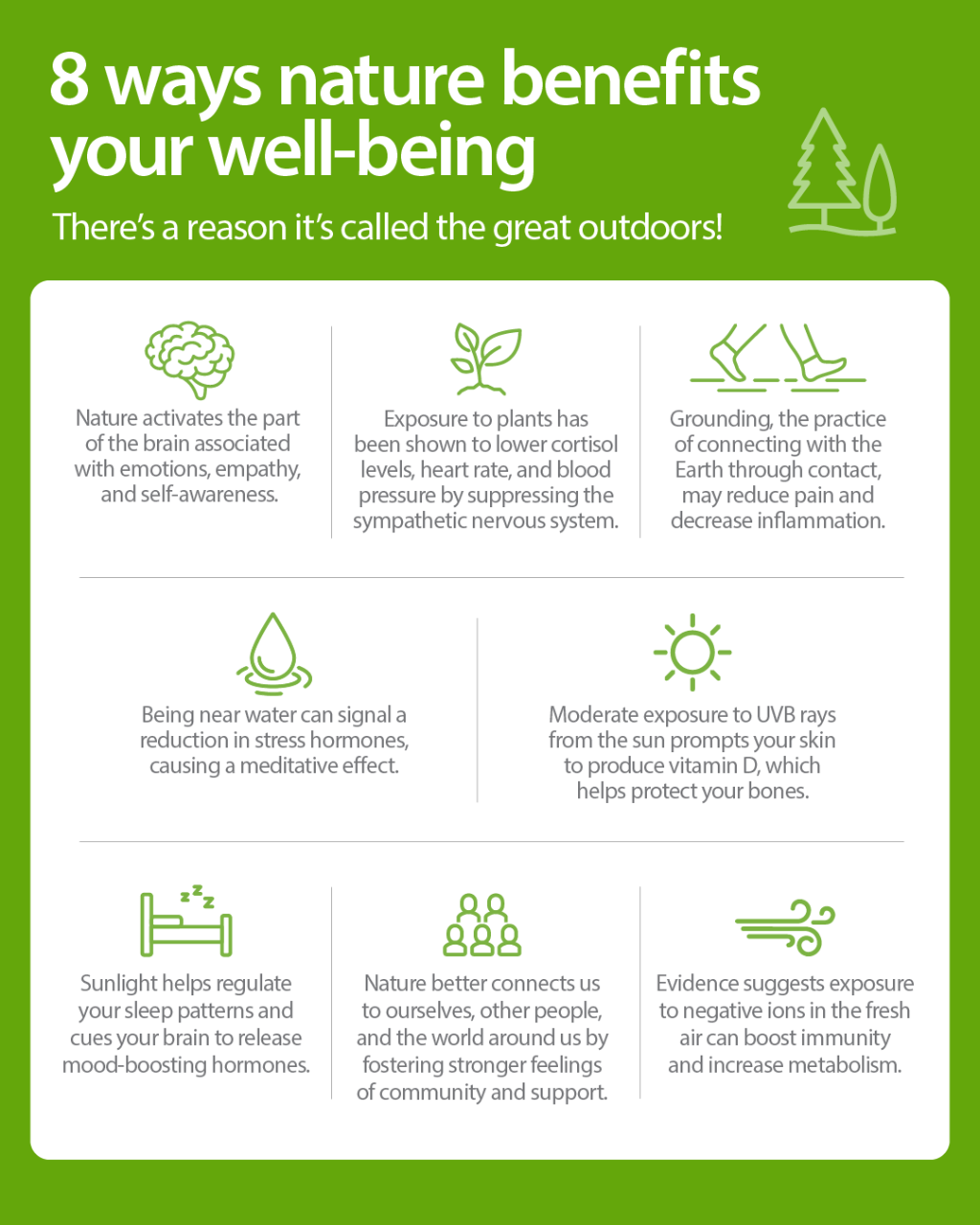How much time do you spend outside? With new forms of technological entertainment, people are spending less time in nature. But most don’t realize that being active outdoors provides more benefits than just physical fitness and weight loss. The very act of being out in fresh air can cause a response in your brain that releases endorphins. But if we want this wonderful Earth to continue providing physical and cognitive benefits, we need to treat it with more kindness.
Why nature is important
The Earth is our home. It provides us with valuable resources we need in order to live and do everyday activities like driving and turning on the lights. Protecting our Earth is an excellent form of humankindness because it helps the animals, people, and environment around us. What you do now for this Earth can benefit your children, their children, and even more generations to come. Treating the environment well today makes the planet a better place to live.
The different ecosystems around the world house plants and animals that support our lifestyles. We can give a little back by keeping their homes clean. Greenhouse gasses like carbon dioxide, methane, nitrous oxide, and water vapor can lead to irreversible damage to the environment. You can reduce your carbon footprint by eating local and seasonal produce, buying clothes secondhand, and riding a bicycle or using public transportation.
Mental health benefits of being in nature
Spending time in nature gives our brains a chance to slow down and take everything in. The outdoors improve mood, increase confidence and self-esteem, and help you feel more connected to your community and nature. A study showed that spending just 120 minutes a week outside is associated with good health and well-being, and those two hours don’t need to be all at once. Getting in nature can be as simple as taking short walks during work breaks, tending to a garden in your backyard throughout the week, or strolling through neighborhood green spaces in the evening. However, if you have the time to go on a long hike through a nearby park or play baseball on a Saturday with your family, you may experience greater physical and emotional well-being improvements.
Physical and cognitive benefits of being outdoors
Different environments can bring you various physical and cognitive benefits. Green spaces and trees can lower cortisol levels, heart rate, and blood pressure, while blue areas and waterfronts can signal a reduction in stress hormones, causing a meditative effect. Check out these other benefits of nature:
Nature activates the part of the brain associated with emotions, empathy, and self-awareness.
Grounding, the practice of connecting with the Earth through contact, has been shown to reduce pain and decrease inflammation.
Moderate exposure to UVB rays from the sun prompts your skin to produce vitamin D, which helps protect your bones. But don’t forget your sunscreen if you’ll be outside for more than 15 minutes!
Sunlight helps regulate your sleep patterns and cues your brain to release mood-boosting hormones.
Evidence suggests exposure to negative ions in the fresh air can boost immunity and increase metabolism.
Nature better connects us to ourselves, other people, and the world around us by fostering stronger feelings of community and support.
Why do we celebrate Earth Day?
Earth Day is an international observance recognized each year on April 22. This holiday was first established in 1969 after Senator Gaylord Nelson and others witnessed a massive oil spill in Santa Barbara, California. Nelson first brought the idea of conservation-minded education to college campuses. After realizing the success this movement could hold, he formed a national staff across the United States and dubbed the name Earth Day, bringing in national media attention.
From its origin, Earth Day went global in 1990, lifting environmental issues to a world stage. Today, Earth Day is the most widely recognized secular observance globally, with more than a billion people taking action toward environmental issues each year. Here are a few simple ways you can step up for Earth:
Trade in plastics for reusable items.
Buy produce from a local farmers market.
Visit a local, state, or national park.
Pick up litter around your community.
Recycle or compost.
Learn a skill that will help reduce your impact on the environment.
The planet we live on is an incredible place that provides us with benefits we do not want to live without. Take care of this Earth, not only for yourself but also for those who come after you. Schedule an appointment with a Baylor St. Luke’s Medical Group primary care physician to talk about how to stay safe doing outdoor activities this spring and summer. Happy Earth Day, and enjoy the great outdoors!





